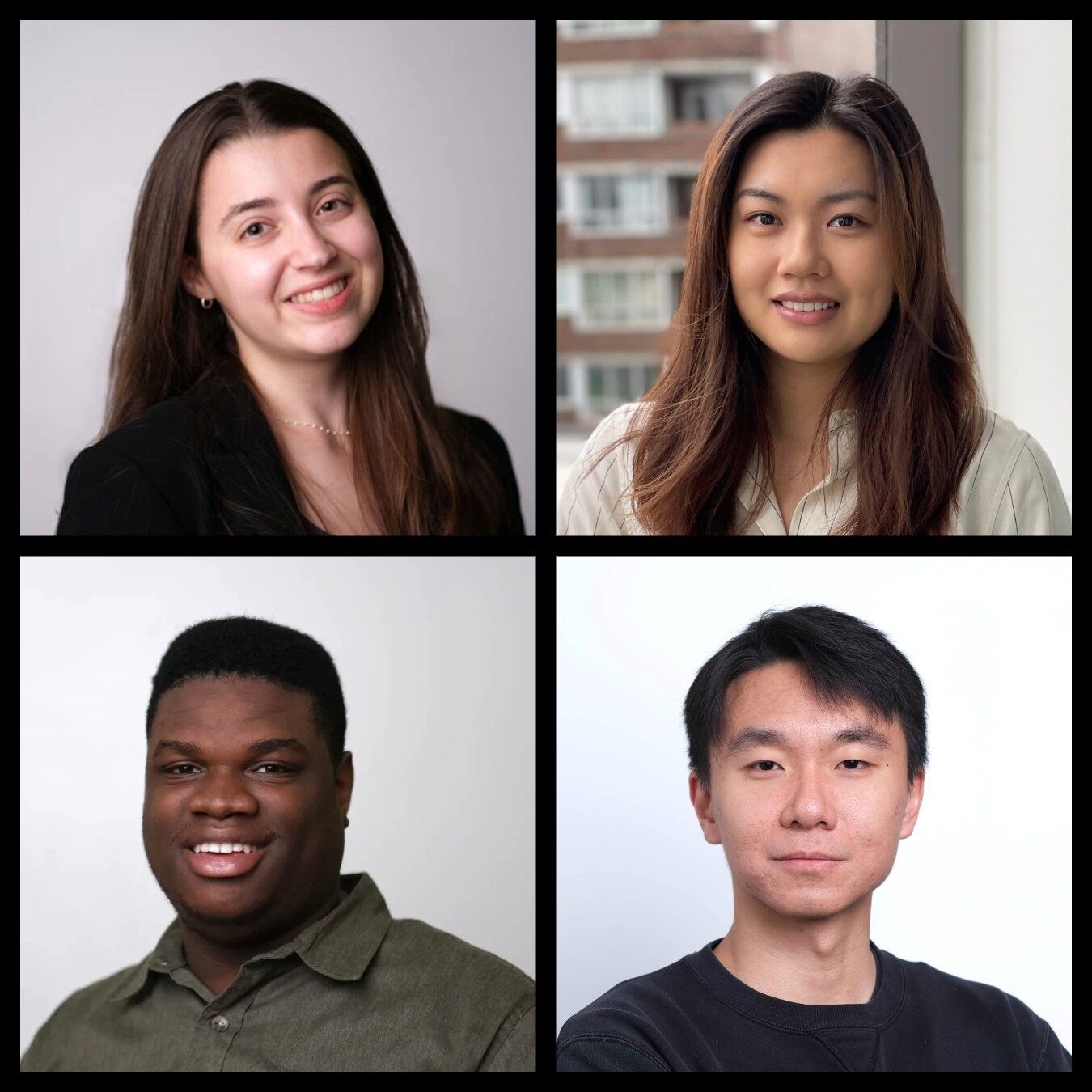
Four BME trainees recognized with NSERC awards for doctoral and postdoctoral research
Four students and postdoctoral fellows from the University of Toronto’s Institute of Biomedical Engineering (BME) have been awarded top honours in the Natural Sciences and Engineering Research Council of Canada’s (NSERC) 2025 Scholarships and Fellowships competition. From left to right: Samantha Unger, Keyi (Elisa) Guo, Reke Avikpe, and Tianhao Chen.
Four students and postdoctoral fellows from the University of Toronto’s Institute of Biomedical Engineering (BME) have been awarded top honours in the Natural Sciences and Engineering Research Council of Canada’s (NSERC) 2025 Scholarships and Fellowships competition.
These highly competitive awards support the most promising doctoral and postdoctoral researchers across Canada in advancing their scientific work. This year, NSERC received 1,802 applications for its Canada Graduate Scholarships-Doctoral (CGS D) and Postgraduate Scholarships-Doctoral (PGS D) programs, and 751 applications for its Postdoctoral Fellowships (PDF).
CGS D and PGS D awards are valued at $40,000 annually over three years, while PDFs provide $70,000 annually for two years.
The complete list of winners can be found here.
Samantha Unger
Award: Canada Graduate Scholarship – Doctoral (CGS D)
Advisor: Daniel Franklin
Keyi (Elisa) Guo
Award: Canada Graduate Scholarship – Doctoral (CGS D)
Advisor: Molly Shoichet
Project Title: Co-delivery of chondroitinase ABC and neural progenitor cells in bioresorbable hydrogel for stroke recovery
Keyi is developing a novel bioresorbable hydrogel capable of delivering both neural progenitor cells and stabilized chondroitinase ABC—an enzyme that breaks down inhibitory molecules in damaged brain tissue. This approach aims to improve cell survival, enhance brain tissue regeneration, and ultimately offer new hope for stroke recovery.
Reke Avikpe
Award: Postgraduate Scholarship – Doctoral (PGS D)
Advisor: Cristina Amon
Project Title: Advancing tissue engineering: development and validation of an in silico model to optimize the differentiation of human pluripotent stem cells to cardiomyocytes
Reke is addressing the inefficiencies of current stem cell differentiation methods by building a computational model that predicts how pluripotent stem cells become heart cells. By simulating the effects of nutrients, oxygen, mechanical forces and culture conditions, his in silico model will help streamline lab work, cut costs, and accelerate the development of regenerative cardiac therapies.
Tianhao Chen
Award: NSERC Postdoctoral Fellowship (PDF)
Proposed Project: Designing multi-functional neural interfaces for electrical stimulation and electrochemical sensing of neurotransmitters









